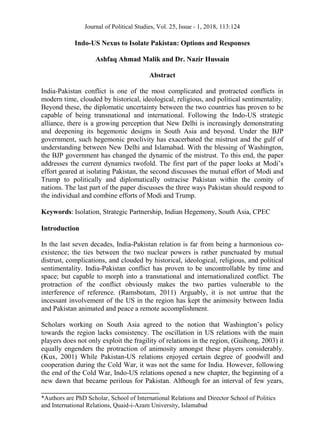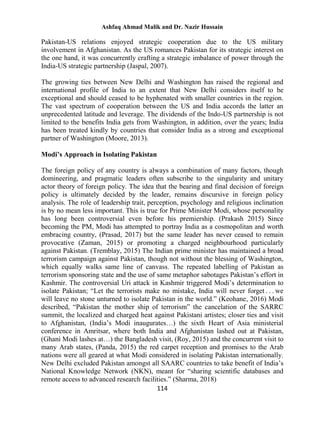This summary provides the key points from the document in 3 sentences:
The document discusses India and the US working together to isolate Pakistan diplomatically and politically. It analyzes Prime Minister Modi's efforts to portray Pakistan negatively on the global stage and increase cooperation between India and the US under President Trump. The document then outlines three options for Pakistan to respond: neutralizing Indian influence in the region through domestic reforms, economic growth, and rebranding Pakistan's image internationally through academics.











